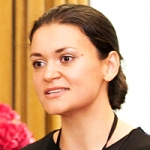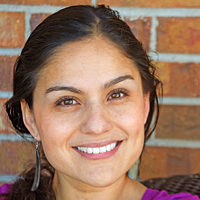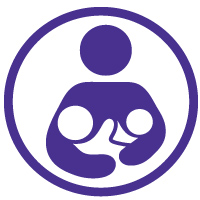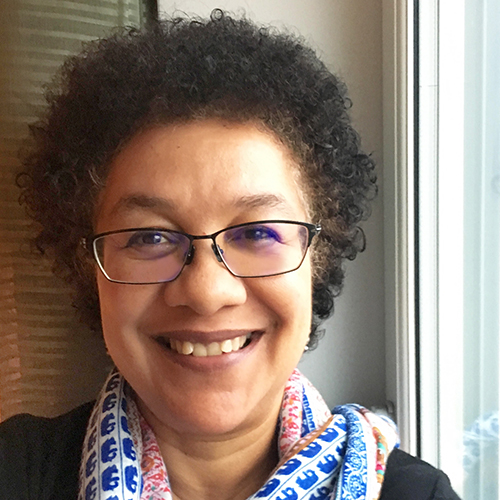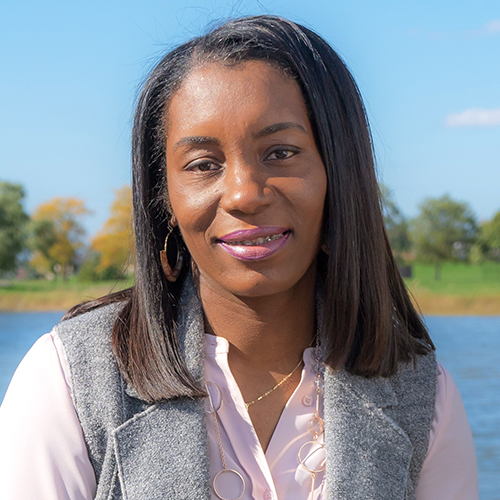 IBCLC Detailed Content Outline: Clinical Skills Focused CERPs - Section VII
IBCLC Detailed Content Outline: Clinical Skills Focused CERPs - Section VII
Access CERPs on Clinical Skills for the IBCLC Detailed Content Outline recertification requirements. Enjoy convenient on-demand viewing of the latest Clinical Skills focused IBCLC CERPs at your own pace.
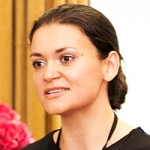

Mihaela Nita- MD, IBCLC, medical doctor (since 2007), specialized in pediatrics and International Board Certified Lactation Consultant (since 2011), worked mainly to develop the profession of IBCLC in Romania. Organizer of the first IBCLC Day in Romania, is the co-founder and president of Romanian Lactation Consultant Association, member of ELACTA. Active in the field of lactation, organizing conferences, events, support groups, 90 hours training courses, CERPs accredited courses, fundraising events. On behalf of the Romanian Lactation Consultant Association, Mihaela Nita started the first volunteer work in the country, in the NICU of Marie Curie Emergency Children Hospital in Bucharest that led to the idea of implementing a human milk bank. Mihaela is passionate about training, advocating for the IBCLCs role and making a change for mothers, society and medical system in the field of lactation.
Romania is one of the European countries with a very low breastfeeding rate. The emergence of IBCLCs in the past 2 decades helped in improving mothers access to lactation professionals. Starting from 2013 with the first celebration of IBCLC Day, conferences and courses, the awareness of a new profession raise.
Although in Europe there are more than 200 human milk banks, Romania does not have one.
The limitations in the process of implementing a human milk bank in the NICU, the gap of legislation, the support of the civic society and 2 cases are discussed in the presentation.

View Details / Enroll


Paulina is the mother of three multicultural Latino children and Project Director for Lifespan Local. Paulina earned her BS in Psychology from the Pennsylvania State University, a MS in Organizational leadership from the University of Denver and is completing her PhD in Health and Behavioral Sciences at the University of Colorado - Denver. Paulina has over 18 years of experience working with families with young children. As a Maternal Child Health specialist for Jefferson County Public Health, she developed a NICU follow-up home visitation program and the pediatric emergency preparedness plan, co-founded and coordinated the Conectando Network (former Adelante Jeffco), established community navigation and lactation support groups focused on the Latino Spanish speaking community, and lead other initiatives to support leadership and partnerships among communities and organizations. During the COVID-19 pandemic, she managed the new program Whole Community Inclusion to ensure the pandemic response and recovery implementation included health equity practices that recognize the needs and the strengths of priority populations in the county. Her areas of current work include promoting perinatal and infant mental health along the continuum of care; building community capacity to navigate health and education systems; facilitating organizational change to embrace linguistic and culturally responsive practices; and establishing community-placed participatory programs to strengthen communities. She likes to be with people, learn from and with others, and connect passions for meaningful work.
Topic: From the NICU to the home: mother’s experiences - [View Abstract]
Topic: Leadership Skills in Lactation: Make Extraordinary Things Happen - [View Abstract]
Topic: Liderazgo en Lactancia - Para Alcanzar Metas Extraordinarias - [View Abstract]
Topic: Nursing A Preemie, Perspectives For Lactation Supporters and Professionals - [View Abstract]
Lactation consultants would benefit from expanding their understanding of the impact of the NICU stay on the family; moreover, they would benefit from identifying the essential role they could play in assisting families to accomplish a positive, healthy, and smooth transition home.
Despite continuing efforts to reduce prematurely worldwide, a significant number of infants are born too early or in a fragile medical condition. Many of these infants experience a lengthy stay at the NICU. Lactation support varies across facilities, but families, especially mothers, develop strong connections with their lactation consultant. As one of their most consistent providers in the NICU, the lactation consultant has the opportunity to recognize families’ need for continuing support after discharge and strategies to protect the breastfeeding relationship, attachment, and mental health in the long term.

View Details / Enroll
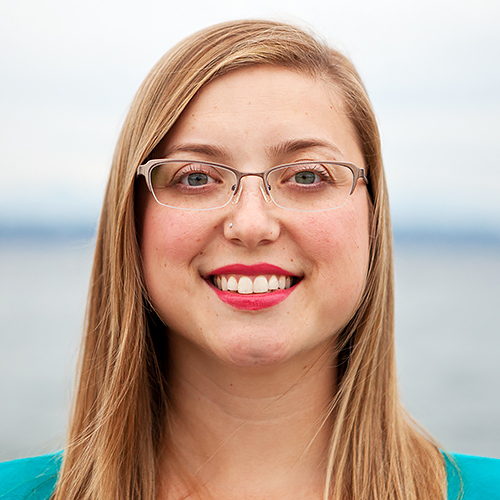
Full-Term Breastfeeding/Chestfeeding: Benefits, Considerations, and Ways to Offer Support

Joy MacTavish, MA, IBCLC, RLC is an International Board Certified Lactation Consultant and certified Holistic Sleep Coach focusing on the intersections of infant feeding, sleep, and family well-being. Through her business, Sound Beginnings, she provides compassionate and evidence-based support to families in the greater Seattle area, and virtually everywhere else. She entered the perinatal field in 2007 as birth and postpartum doula, and childbirth and parenting educator. Joy holds a Master of Arts in Cultural Studies, graduate certificate in Gender, Women and Sexuality Studies, and two Bachelors degrees from the University of Washington. She enjoys combining her academic background, analytical skills, and passion for social justice into her personal and professional endeavors. Joy serves as an Advisory Committee Member and guest speaker for the GOLD Lactation Academy. When not working or learning, she can be found homeschooling, building LEGO with her children, or dreaming up her next big adventure.
Topic: Full-Term Breastfeeding/Chestfeeding: Benefits, Considerations, and Ways to Offer Support - [View Abstract]
Topic: Mindful Breastfeeding: How Lactation Professionals Can Support Calm and Connection - [View Abstract]
Topic: Sending Reports: What’s in it for IBCLCs? - [View Abstract]
Topic: Supporting Clients Facing Fertility Treatment - [View Abstract]
Topic: The Intersection Between Lactation, Sleep, and Family Well-Being - [View Abstract]
Topic: Weaning: Supporting Families Stopping Lactation and/or Ending Their Breastfeeding/Chestfeeding Relationship - [View Abstract]
"Full-term," "natural term," or "extended" are just a few of the phrased that are often used when describing breastfeeding/chestfeeding relationships that last longer than the cultural norm for a given community or geographic region. We know that breastfeeding/chestfeeding past infancy is full of benefits for both the parent and the child. Yet many families who plan for (or unintentionally find themselves in) a breastfeeding/chestfeeding relationship into toddlerhood or beyond face critiques, emotions, logistics, and a need for support that is unique to this experience. This presentation will cover considerations of full-term nursing including an overview of developmental stages for a breastfeeding/chestfeeding child, changes in milk composition, and psychobiological benefits to both the child and parent. We will also explore ways that lactation supporters and professionals may offer support, encouragement, and guidance to these families. Whether you have been supporting full-term nursing for years, or this is an area that you'd like to learn more about, you're sure to leave this presentation with insights and strategies that you can use to support full-term nursing families.
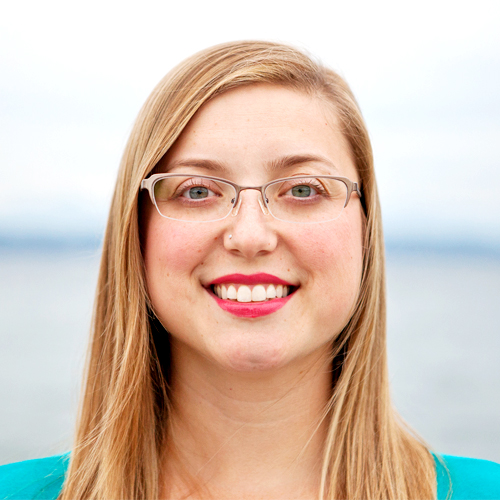
View Details / Enroll
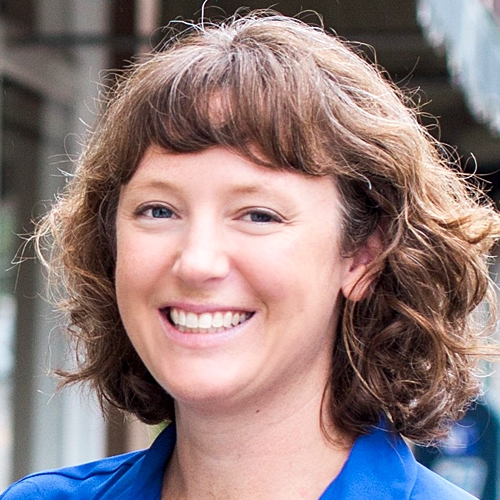
Funny Tasting Milk: The Biochemistry and Clinical Applications of Human Milk Oxidation vs. High Lipase Action

After studying biology at Meredith College in North Carolina, Nicola Singletary, PhD, MAT, IBCLC spent the early part of her career sharing her love of science with middle school students. It was not until after the birth of her first child in 2007 and the challenges she faced breastfeeding that she became interested in pursuing a career in breastfeeding support. She enrolled at North Carolina State University to study human nutrition and completed the Mary Rose Tully Training Initiative through the Carolina Global Breastfeeding Institute at UNC Chapel Hill in 2012. In the fall of 2013, she opened Harmony Lactation, LLC with the goal of helping mothers meet their breastfeeding goals. She recently completed her PhD in Nutrition and is a postdoctoral researcher at NCSU; her research focuses on breastfeeding education. She is also co-owner of Next Level Lactation, an educational and consulting company for lactation professionals.
Topic: Funny Tasting Milk: The Biochemistry and Clinical Applications of Human Milk Oxidation vs. High Lipase Action - [View Abstract]
Some breastfeeding parents find that their stored milk tastes sour or rancid, and sometimes this milk is refused by their baby. These flavors and odors are often described as metallic, fishy, rancid, sweaty or soapy. But what exactly causes these ‘off’ flavors and what can be done about milk that is refused? Is the solution always to scald milk? Milk with high lipase action leads to milk with increased levels of free fatty acids during storage that can produce rancid and sweaty flavors. Enzymes such as lipase can be inactivated by heating prior to milk storage. Milk with high levels of polyunsaturated fatty acids is susceptible to fat oxidation during storage leading to fishy and metallic flavors. Storage recommendations to reduce oxidation of fatty acids in milk include using short storage times, thawing at cold temperatures, and avoiding light exposure during storage. Case studies of both oxidized milk and high lipase action will be presented along with possible solutions.

View Details / Enroll
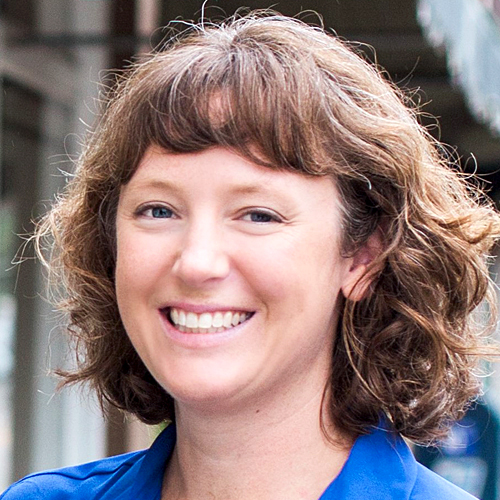
View Details / Enroll
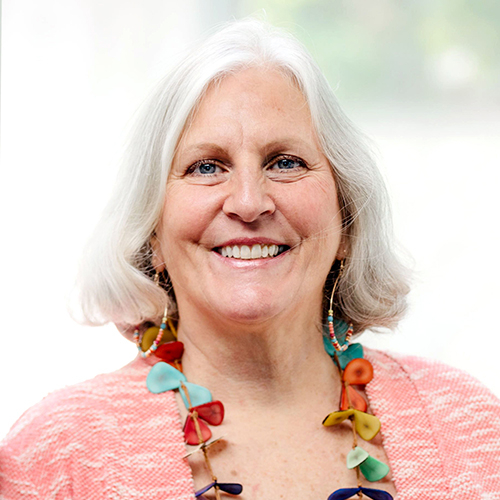
Gamechangers: New studies that will change the way we think about tongue-tie

Dr. Hazelbaker has been a therapist in private practice for over 30 years. She specializes in cross-disciplinary treatment and to that end has taken training in several modalities to best assist her clients. She is a certified Craniosacral Therapist, a Lymph Drainage Therapy practitioner, a Tummy Time™ Trainer, a Haller Method practitioner, A Pre and Perinatal Psychology Educator, a Lactation Therapist Diplomate, an International Board Certified Lactation Consultant and a fellow of the International Lactation Consultant Association.
She earned her Master’s Degree from Pacific Oaks College (Human Development specializing in Human Lactation) and her doctorate from The Union Institute and University (Psychology, specializing in Energetic and Transformational healing.)
People recognize her as an expert on infant sucking issues caused by various structural problems like torticollis, plagiocephaly, brachycephaly and tissue shock-trauma. She invented the Hazelbaker™ FingerFeeder and the Infant Breastfeeding CranioSacral Protocol™ to assist in the resolution of this type of infant sucking dysfunction.
Topic: Cranial Nerves: A Critical Component of the Process of Breastfeeding - [View Abstract]
Topic: Creating Flow: Using Lymphatic Drainage Therapy for Breastfeeding Issues - [View Abstract]
Topic: Finger Feeding: What Do We Know? What Should We Know? - [View Abstract]
Topic: Gamechangers: New studies that will change the way we think about tongue-tie - [View Abstract]
Topic: Infant Trauma: Impact on Breastfeeding - [View Abstract]
Topic: The Faux Tie: When is a "Tongue-tie" NOT a Tongue-tie? - [View Abstract]
Topic: The Impact of Bodywork on Infant Breastfeeding - [View Abstract]
Topic: What Does Torticollis Have to do with Breastfeeding? - [View Abstract]
This presentation examines several influential recent studies that will change the way we think about tongue-tie; the manner in which we examine, treat and perform therapy on babies. From the overall perspective of development, Dr. Hazelbaker looks at histology, speech development, posture, wound healing, lasers and airway integrity, citing the most exciting studies on these subjects, explaining how each will impact our philosophical, intellectual and clinical involvement with study findings. Further, Dr. Hazelbaker makes suggestions of how these various studies should guide our thinking about when and how to assess and treat tongue-tied infants.
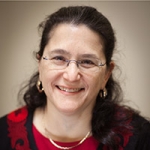
Getting Milk to Babies: Social, medical, economic and commercial forces

Naomi Bar-Yam, PhD, ACSW, has been working in maternal and child health for over 30 years as an educator, researcher, advocate, and writer. She is the immediate past president of the Human Milk Banking Association of North America (HMBANA) and the founding director of Mothers’ Milk Bank Northeast, which provides safe donor milk to hospitals and families throughout the northeastern US. An expert on access to perinatal health care and policies that support breastfeeding, she has been a consultant to the Centers for Disease Control (on a panel that created “The CDC Guide to Breastfeeding Interventions”), to the United States Breastfeeding Committee (developing an issue paper addressed to CEOs and legislators on breastfeeding and the workplace), and to the March of Dimes (developing educational material for women and families who are medically and socially vulnerable to high-risk pregnancy). She also developed a curriculum for hospital personnel about combining breastfeeding with their work. She reviews articles submitted to the Journal of Human Lactation, Breastfeeding Medicine, and other publications related to breastfeeding, milk banking, and access to perinatal child care. As Executive Director of Mothers’ Milk Bank Northeast, she is thoroughly versed in the technical, procedural, and ethical aspects of milk banking. She often speaks at professional conferences, hospital staff trainings, and grand rounds about milk banking and breastfeeding policies.
Topic: Ethical Concerns in Human Milk Exchange - [View Abstract]
Topic: Getting Milk to Babies: Social, medical, economic and commercial forces - [View Abstract]
Topic: The Whys and Hows of Using Banked Donor Milk - [View Abstract]
Successful infant feeding is crucial to the survival of babies and the human race. Throughout history and across the world, societies have had to address alternatives to maternal breastfeeding. We will present an overview of the history of infant feeding, including the forces involved in the decline of breastfeeding and wet nursing and the rise of “scientific” infant feeding, commercial infant formulas and milk banking. We will also define and discuss milk kinship practiced in Islam and throughout the Far East and Middle East. We will cover as well the forces and organizations involved in the rise of breastfeeding, milk sharing, and milk banking over the last 2-3 decades, and the social, economic and commercial forces impacting infant feeding today. We will conclude with a discussion of how history can help us understand and influence future trends.
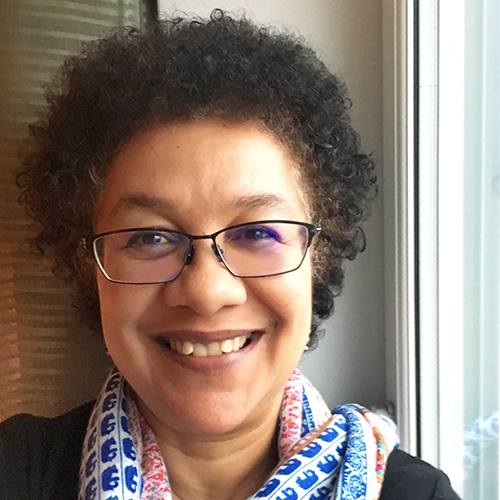
Global Perspectives on the Warm Chain of Support for Breastfeeding

Dr. Amal Omer-Salim is the Executive Director of the World Alliance for Breastfeeding Action (WABA). She is a nutritionist with a Ph.D. from Uppsala University, Sweden. Her areas of expertise are nutrition, breastfeeding, international health, gender, programme planning, research, and advocacy, with a special focus on Africa and Asia.
Global trends in breastfeeding rates only show modest increases between 2000 and 2015. Currently, about 40% of babies below 6 months are exclusively breastfed and several barriers on the structural, setting, and individual levels exist. Continuous support for mothers across the 1000 days from conception has been shown to be effective in increasing the duration and exclusivity of breastfeeding. WABA’s Warm Chain campaign places the mother-baby dyad at the core and strives to link different actors by coordinating efforts at all levels to provide a continuum of care during the first 1000 days. The warm chain needs to be protected, promoted, and supported. Protection includes implementation and monitoring of the International Code of Marketing of Breastmilk Substitutes as well as coordination to ensure that all the linkages in the chain are working well. Promotion entails providing information about the roles and responsibilities of each actor along the timeline. Support includes increasing knowledge, skills, and competencies of multi-professional teams in order to provide optimal support for breastfeeding. Achieving a warm chain of support for breastfeeding will help increase breastfeeding rates, thus ensuring improved survival, health, and well being. The short and long-term positive effects impact individuals, societies, and the planet.

View Details / Enroll
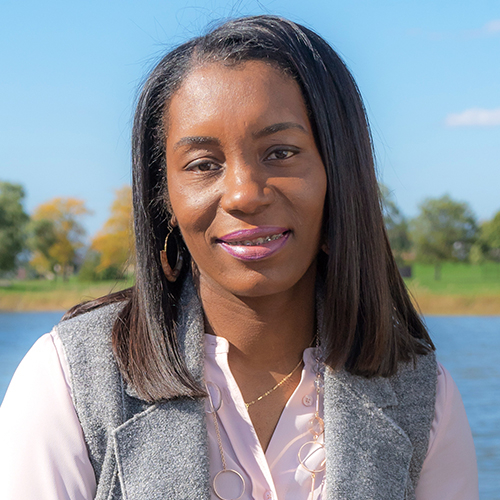

Stacy Davis is the Health Equity and Community Partnerships Manager for the National Women, Infant and Children (WIC) Association. Inspired by her personal and professional experiences, Stacy has focused her efforts on addressing health equities in Maternal Child Health, locally, nationally and internationally, especially as it pertains to black and brown families.
As the former executive director of the National Association of Professional and Peer Lactation Supporters of Color, Stacy established the organization as a brand and leader in the field- addressing racial inequity in lactation support and education, acting as expert panelist and collaborator with other leading organizations, and holding privileged organizations accountable and responsible for the health and wellbeing of communities of color. Additionally, she participated in the growth and expansion of equitable access to Pathway 2 lactation training programs at Historically Black Colleges and Universities, such as Johnson C. Smith and North Carolina A&T Universities. She co-developed and hosted a unique event of its kind- The Amazing R.A.C.E.- a safe space retreat for Maternal Child Health professionals and supporters.
Stacy is a graduate of Western Michigan University where she obtained her master’s degree in Public Health. She has received numerous honors including, but not limited a member of the Center for Social Inclusion’s First Food Racial Equity Cohort, IBCLE’s Spotlight, and the AHEAD in WIC Health Equity Champion. Stacy Davis is a United States Lactation Consultant Association Board of Director.
New parents do not anticipate a challenging journey when it comes breast-/chest-feeding. When things do not go as planned, parents are therefore often consumed by fear and uncertainty and look to professionals for support. Being the person guiding the steps of a new, lactating parent creates a challenge. How do you design a care plan which address the concerns of the parent(s) but also allows the parent(s) to act as a member of the team and the expert on what is best for them and their family in their current life circumstances? How do you foster self-efficacy, and self-empowerment in your clients to ensure that your plan of care is feasible and within the capacity of the parent(s)? Learn more about the importance of meeting parents where they are at to create a care plan which is mutual, feasible, and sustainable. This presentation will be a 60-minute Q&A session so bring your questions about how to approach communication and counselling to create a plan of care that really works for your clients and helps them to meet or exceed their infant feeding goals.
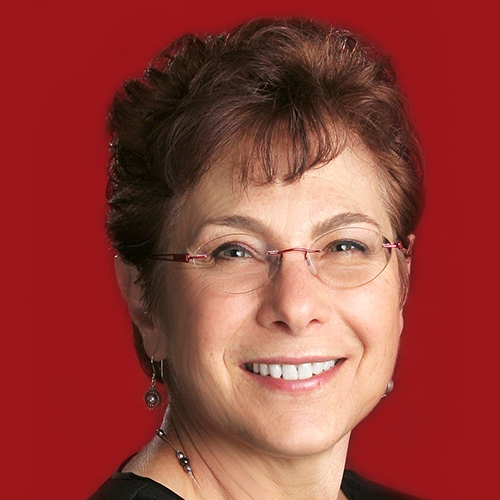
Helping Premature Babies Learn to Breastfeed: We Can Do It!

Robin P. Glass, MS, OTR, IBCLC practices occupational therapy at Seattle Children's Hospital in Seattle, WA and is an Assistant Clinical Professor in the Department of Rehabilitation, at the University of Washington. Her clinical specialty is the treatment of infants, with a strong focus on feeding and swallowing issues. She provides treatment for hospitalized infants including the NICU with a wide range of medical and developmental diagnoses. She is NDT trained and is a 20 year Board Certified Lactation Consultant. Robin has extensive national and international experience speaking about infant feeding.
Robin has received numerous awards including the National Association of Neonatal Therapists (NANT) 2015 Pioneer Award and the 2018 Nancy Danoff Spirit of Service award from the Breastfeeding Coalition of WA and Nutrition First. Robin has co-authored numerous journal articles as well as the book Feeding and Swallowing Disorders in Infancy: Assessment and Management.
Topic: Optimizing the Feeding Abilities of Premature Infants to Support Breastfeeding - [View Abstract]
Learning to breastfeed is the optimal and ideal method of feeding for any baby. For the baby born prematurely, however, there are factors related to the infant, to the environment and to the mother that can make this process more challenging. Many mother-baby dyads often leave the NICU not fully breastfeeding and continue to struggle once at home. This presentation will describe systematic, evidence based approaches to developing breastfeeding in the premature infant. It will review developmental and co-morbid factors affecting the infant’s feeding acquisition. A model pathway to develop breastfeeding will be outlined and this can serve as a template for varying NICU’s.

View Details / Enroll
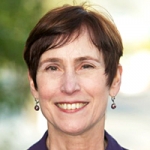

Carolyn Lund has been a Clinical Nurse Specialist in the NICU at UCSF Benioff Children's Hospital Oakland for over 30 years, and is also an Associate Clinical Professor at the University of California, San Francisco.
She has contributed to knowledge of neonatal skin care through original research in the areas of skin maturation, skin integrity and adhesive damage, and bathing. Under her leadership, the first evidence-based Neonatal Skin Care Guideline was developed and evaluated in 51 nurseries in the US in 2001. She then served as team leader on revisions of guideline in 2007 and 2013 and is currently working on the 4th revision due in 2018.
In addition to neonatal skin care, Carolyn has lectured extensively on surgical care and vascular access for neonates.
An evidence-based neonatal skin care guideline has been available since 2001, and the 4th edition of this guideline was published in 2018. The unique properties of newborn and premature infant skin places them at risk for potential toxicity and skin injury. Knowledge of these differences can inform providers about improved and safer techniques in the areas of bathing, skin disinfectants, use of medical adhesives, prevention and treatment of diaper dermatitis.

View Details / Enroll



